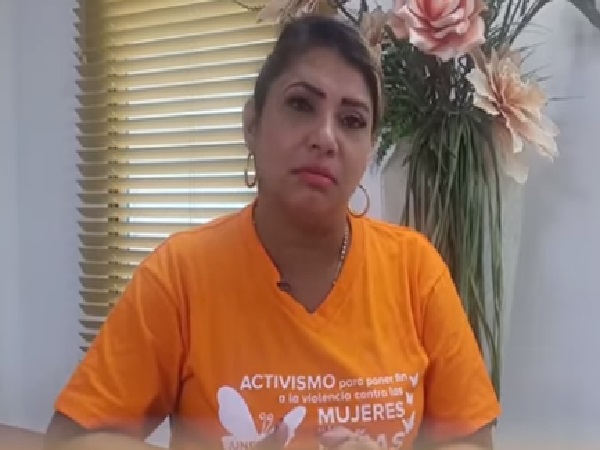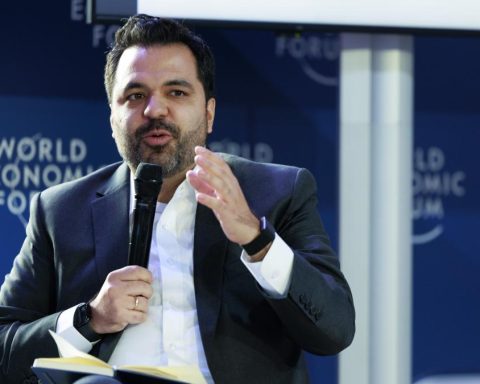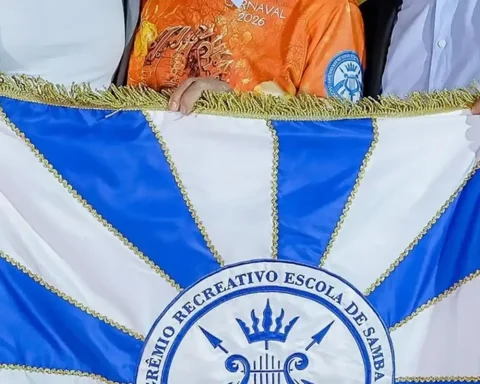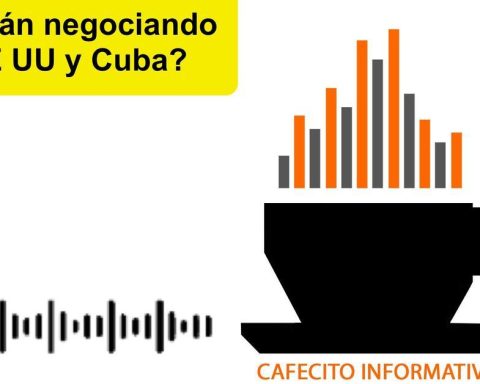“If the economic right maintains the veto and blocks the approval of the pension and tax reform promoted by the government of President Gabriel Boric and Finance Minister Mario Marcel, the constitutional agreement could fall.”
This is what Flavia Torrealba, president of the Social Green Regionalist Federation (FRVS) – a government alliance party that has two senators and two deputies – pointed out in a letter on Wednesday, December 14. This was two days after putting his signature on the pact between the ruling party and the opposition that gives the possibility of opening a new constituent process, with the name Agreement for Chile.
On the same day, from another community of the base of Government, the Comunes party –with three deputies–, released a letter in which they stated that in the agreement “there are excessive elements of tutelage that restrict the democratic debate” and that they will seek to incorporate a proposal that ensure citizen participation.
In order to initiate a body that elaborates a new Constitution, a constitutional reform needs to be voted on, which must be approved by a quorum of 4/7, both from the Chamber of Deputies and Deputies and from the Senate.
On the letter of Commons, Vlado Mirosevic, president of the Lower House, said this Thursday -in conversation with infinite radius– that it is “unacceptable” that they seek to change the agreement – which took more than three months of talks before coming to light – to make “improvements” to it.
-How can the agreement fall?
-If the right does not show the same will that Approve Dignity had, that we made gigantic sacrifices in this process to move forward with this political pact, the discussion of this process can be blocked and it can be stopped. It can fall if the will is not set from the economic right. We see in Europe and the United States that they are asking for tax increases, and we see evasion and avoidance in Chile as a practically established industry.
-But from the beginning it has been said that the constitutional agreement and the reforms such as the tax and pension reforms should go their separate ways…
-The right raised that. From the first meetings I said that, as a gesture to the political forces that were sitting and to the Government, mainly the economic right, they should express their will to carry out the tax and pension reform. It is not for a whimsical question. We are leading the citizens through a constituent process that is not part of the urgencies that appear in the conversations and mobilizations. We believe that, in order to safeguard citizen confidence in the political system, it must respond adequately to their demands.
-Does this have to do with the reason why they did not sign the pact on November 15, 2020 as FRVS?
-If in that pact the political forces had agreed to carry out a tax reform that would allow the best distribution of wealth, or they had committed a pension reform, the FRVS would have been there. But they opted for a constitutional text that, although it is extremely important, did not meet the requirements of the mobilized citizens.
– What do you think is the importance that citizens gave to the Agreement for Chile that they reached on Monday?
-I think that people are aware that it is an important process, but they see it from a distance. I do not see an effervescence where the conversations are politicized. I rather believe that daily conversations deal with how communities defend themselves from insecurity and the miseries with which older adults are living. It is the responsibility of the entire political system to take charge of these demands and for the people to reconnect with the constituent process. That, as important as it is, is not the most urgent.
-Given the uncertainty that the conversations produced, wasn’t it necessary to give them an end?
-The uncertainty was rather for the business sectors.
Isn’t it important to settle the discussion of a new constituent process?
-It was important to close the conversation, however, it can never be at any price. I believe that there will be indications in the National Congress, which by the way is a representative body of the citizenry and which was elected by popular representation, that it has the legitimacy to introduce changes to this proposal that the political world made to it through the presidents of the matches.
-What are your main objections to the content of the constituent agreement?
-There is discomfort in many sectors, not only in Comunes and in the Social Green Regionalist Federation (FRVS). I think the locks were the main bugs. If a group of experts was established, it would no longer be necessary to have the bases and an Admissibility Committee, which is a kind of Constitutional Court. The will of the citizens is seriously injured with this draft that is going to be delivered, and the constitutional bases are also excessive. There is a risk of having an admissibility committee that will endorse the decisions that others have made, considering that the citizenry is represented in its original power in the Constitutional Council –elected by vote–. The possibility that this convention can make decisions freely and that it can give the political discussions in the background will already be very watery.
– Do you still think that it is no longer a constituent moment?
-The constitutive moment closed when Minister Tohá announced that she was going to dance her first cueca foot with him and no agreement was reached in September. We are in another moment, opening another stage of the process with the signing of the pact. We will see how these stages occur and if we are capable of articulating another constituent moment.
-Like what discussions?
-The constitutions must attend to the distribution of power and its design, and if the bases are already frozen, I believe that we are not going to solve the problems of this government or future ones. How to give more power to the regions, more regulatory capacities and the possibility of planning economic activity and protection of their systems.
Do you think that the electoral system applicable to the senatorial constituencies, with which the members of the CConstitutional Council, is not representative of the political forces in the country?
-Yes. The system that was agreed upon, basically to support President Gabriel Boric, goes against what the FRVS had proposed, which was to define a number of constituent councilors that would reflect not only territorial issues, but also correct for population. Obviously the vote of some territories is worth more than that of large urban concentrations.
-What do you think of the low presence of women in the spokespersons that the groups gave during the constitutional talks and in the coverage of the event?
-The women were collaborative and sought to give their gazes greater breadth. Therefore, it is unfortunate that in this kind of public machismo they have been made invisible, because the truth was that they were the great facilitators. I would like to highlight Paulina Vodanovic (PS) and Natalia Piergentili (PPD), without whom it would have been difficult to reconcile the expectations of the diversity of political forces of the progressive sectors and the challenges posed by the right. They had their attention on what the militancy of the government alliance was thinking. On the right, there were also women who had a broad vision of the process, without whom no agreement could have been reached. But I would like to point out that we are already at a time when people are able to see this phenomenon. The reaction, seeing the images in the media, was strong.


















